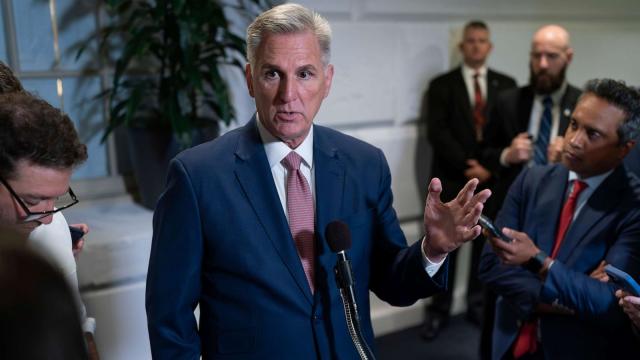Newsmatro

WASHINGTON – With less than a week remaining before the potential government shutdown deadline, the nation watches as lawmakers grapple with the possibility of a far-reaching shutdown. In the midst of the chaos, divisions among Republican lawmakers are hindering any clear path to avert the crisis.
House Speaker Kevin McCarthy Struggles to Unite GOP
In the House of Representatives, the epicenter of the government spending debate, House Speaker Kevin McCarthy (R-Calif.) faces significant challenges in uniting House Republicans behind a resolution that could prevent a shutdown. Conservative hardliners have repeatedly obstructed McCarthy’s attempts to find a solution, leaving some GOP lawmakers to accept the grim possibility of a government shutdown.
“I don’t want to see a shutdown, but there is no doubt in my mind that the country is headed for a shutdown, and everyone should prepare as such,” said Rep. Tony Gonzales (R-Texas) during an appearance on CBS’ “Face the Nation.”
Rep. Mike Turner (R-Ohio), in an interview on ABC’s “This Week,” did not share Gonzales’ pessimistic outlook but acknowledged the difficult situation McCarthy and House Republicans face due to their slim four-seat majority and the intransigence of ultraconservative lawmakers.
“I’ll bet on Kevin McCarthy any day. And we certainly have time yet to go,” Turner said. “But he’s in a very difficult position because the holdouts keep saying to Kevin McCarthy, ‘Don’t bring bipartisan bills to the floor. We don’t want you to use Democrat votes to try to avert a shutdown.'”
Conservative Holdouts Seek Budget Balance
Among the conservative holdouts, Rep. Tim Burchett (R-Tenn.) defended their stance, asserting that they are simply striving to “balance our budget.” Speaking on CNN’s “State of the Union,” Burchett emphasized their commitment to fiscal responsibility.
“We’re sticking to our guns, and all of a sudden, we’re the bad guys because we want to balance our budget,” Burchett said.
Race Against the September 30 Deadline
As the September 30 deadline to fund the government draws nearer, McCarthy’s only potential recourse to avoid a shutdown is to pass a short-term funding measure, commonly known as a continuing resolution (CR), which would grant lawmakers more time to negotiate a longer-term solution. However, staunch holdouts like Burchett have made it clear that they would not support such legislation.
“I’ve not voted for a CR. I didn’t vote for one under President Trump, and I haven’t voted for any in our past. I think it’s just completely throwing away our duties. We have a duty to pass a budget,” Burchett argued.
Moderate GOP Lawmakers Explore Alternative Solutions
With little visible progress in recent weeks and hardline conservatives unwilling to compromise, moderate GOP lawmakers have initiated backchannel discussions with Democrats to formulate a fallback plan and prevent a shutdown.
The Problem Solvers Caucus, a centrist coalition evenly divided between Republicans and Democrats, unveiled a bipartisan framework aimed at avoiding a shutdown. Their strategy includes utilizing a legislative process known as a discharge petition, which could force a bill onto the floor without the need for the Speaker’s approval, bypassing McCarthy.
“I think all options are on the table to get our bipartisan Problem Solvers Caucus bill on the floor,” said Rep. Brian Fitzpatrick (R-Penn.), one of the co-chairs of the caucus, during an appearance on CNN’s “State of the Union.” “We don’t allow the perfect to be the enemy of the good, and we take the perspective that we’d rather get 80% of something rather than 100% of nothing.”
“We will do whatever it takes to get that bill on the floor,” he added.
As the nation edges closer to the September 30 deadline, the fate of government funding remains uncertain, leaving millions of Americans anxious about the potential consequences of a government shutdown.